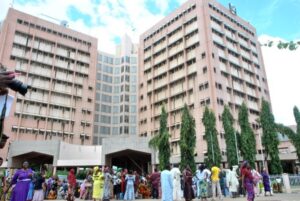The ongoing banditry will have detrimental effects on our community if those supporting it do not cease their actions promptly.
By Abayomi ODUNOWO
Four years ago, the then Governor of Katsina state made a startling revelation that banditry was keeping farmers away from their farms, resulting in over 60,000 hectares of land left uncultivated for that year’s farming season. At that time, the significance of this statement may not have been fully grasped by the general populace, but when broken down into practical terms, the impact of such a loss becomes glaringly apparent.
If we consider the hypothetical scenario where the 60,000 hectares of land were used to cultivate maize, we can begin to understand the magnitude of the situation. In agricultural terms, 60,000 hectares equate to 150,000 acres or 900,000 plots of land. Assuming an average yield of 2 tons of maize per hectare, this would result in a total output of 120,000 tons of maize.
Currently, a ton of maize is being retailed for around N750,000, but for the sake of calculation, let’s assume a discounted price of N700,000 per ton. With these figures in mind, the potential revenue that could have been generated from the cultivation of maize on these 60,000 hectares would amount to a staggering N84 billion.
This substantial sum represents the cost of banditry in just one state alone. When we extrapolate this figure to other states that are also experiencing similar security challenges, the losses incurred due to b@nditry start to escalate dramatically. It becomes evident why food prices are soaring, poultry farmers are struggling to afford maize, and the overall economic landscape is facing severe challenges.
The root cause of this crisis lies in the inability of the government to effectively address the issue of insecurity and provide the necessary support to farmers. If banditry is eradicated, if subsidized farm inputs are made available, and if social infrastructure is improved, there is a strong likelihood that farmers will return to their lands in droves and boost agricultural production significantly.
It is the government’s responsibility to create a conducive environment for businesses to thrive, and in the case of agriculture, this entails ensuring the safety and security of farmers, providing them with the necessary resources and support, and investing in infrastructure that facilitates agricultural activities. By doing so, the government can unleash the latent potential of the agricultural sector and harness the productivity of the farming populace.
The cost of banditry on the agricultural sector is astronomical, and its repercussions are felt not only by farmers but by the entire population through increased food prices and economic hardship. By addressing the root causes of insecurity, providing support to farmers, and investing in agricultural development, the government can alleviate these challenges and pave the way for a flourishing agricultural sector that benefits all. The power to effect change lies in the hands of the government, and only by fulfilling its obligations can we overcome the hurdles posed by banditry and realize the true potential of agriculture in Nigeria.
Otunba Abdulfalil Abayomi ODUNOWO
National Chairman AATSG
Mobile: +2349053535322.






